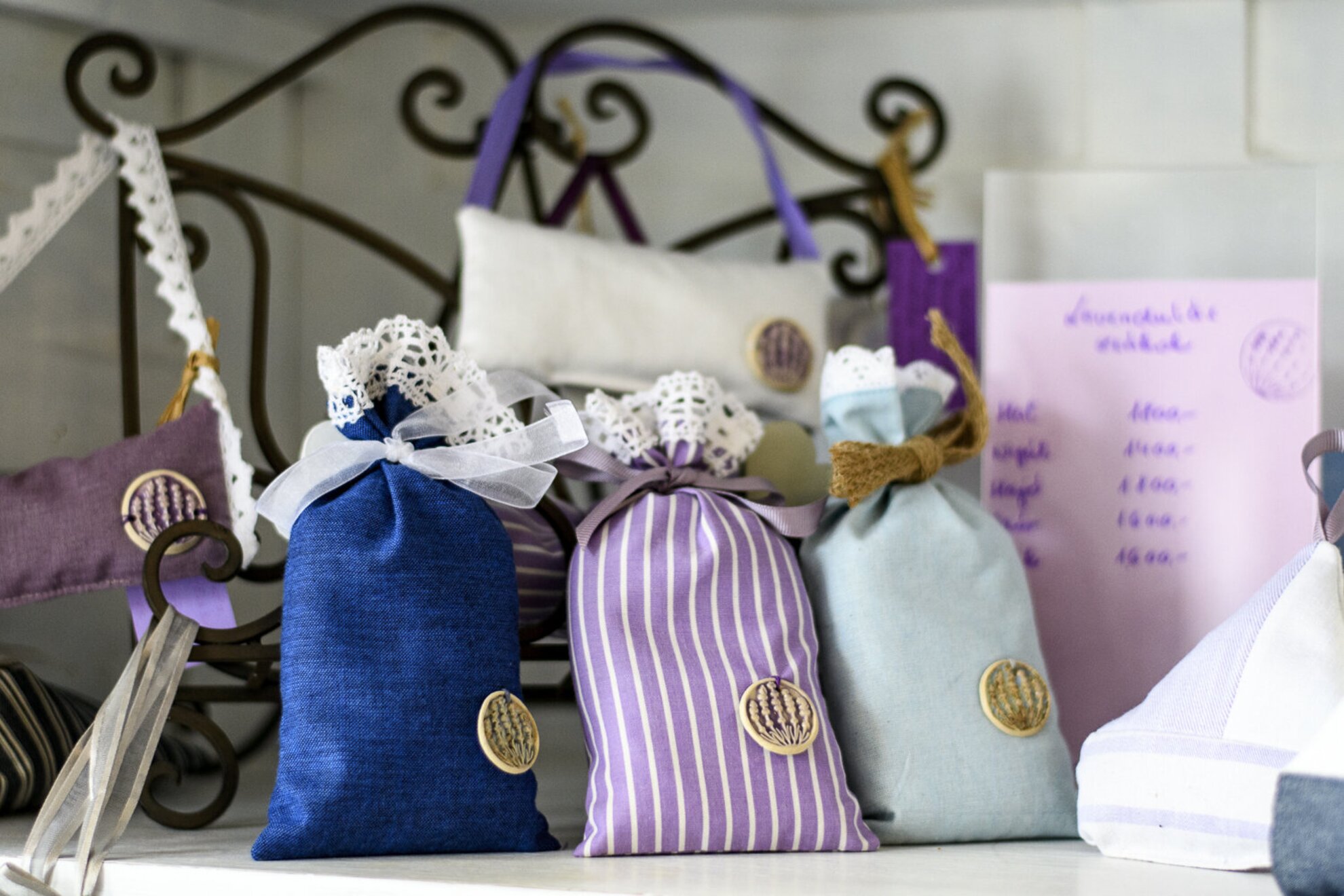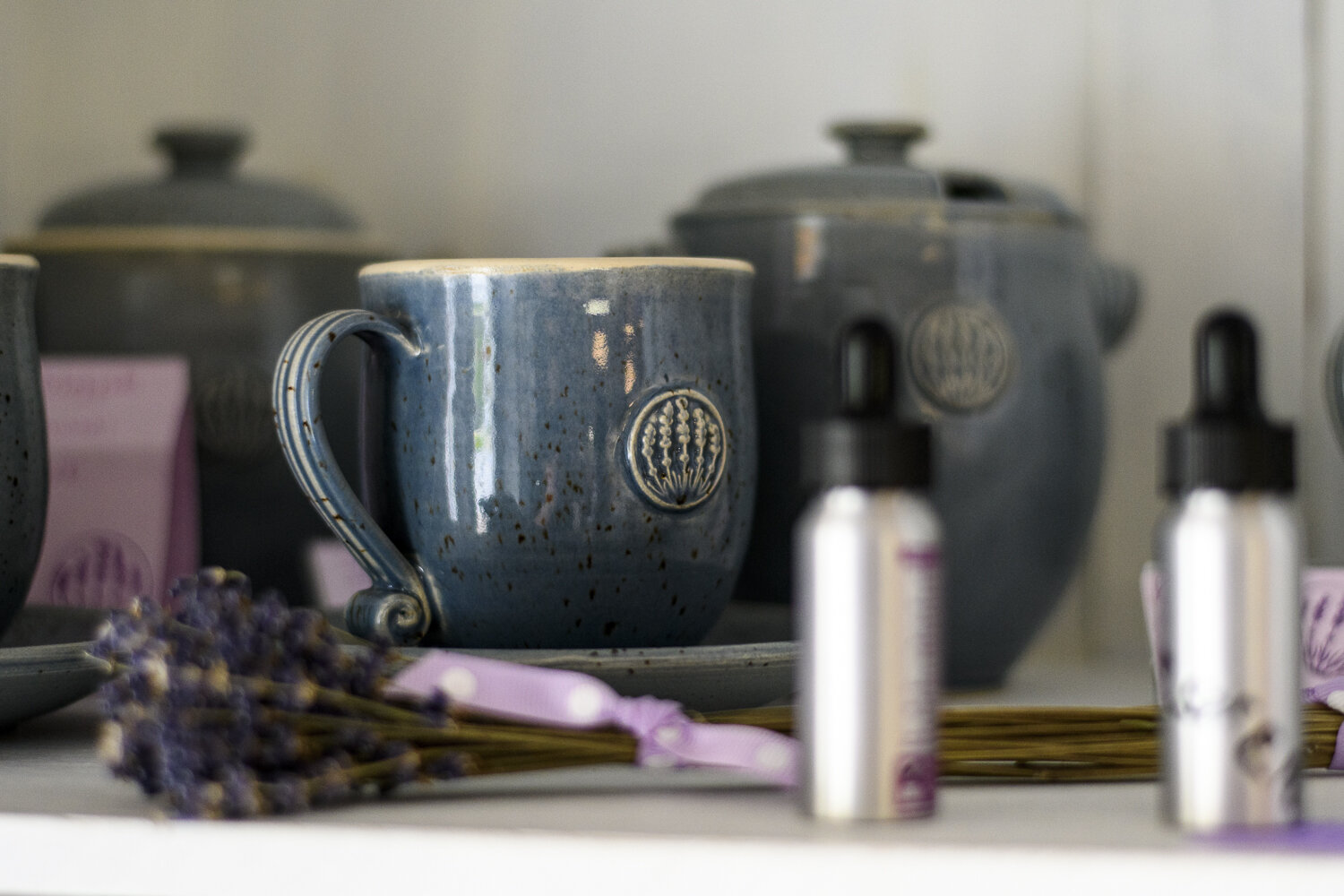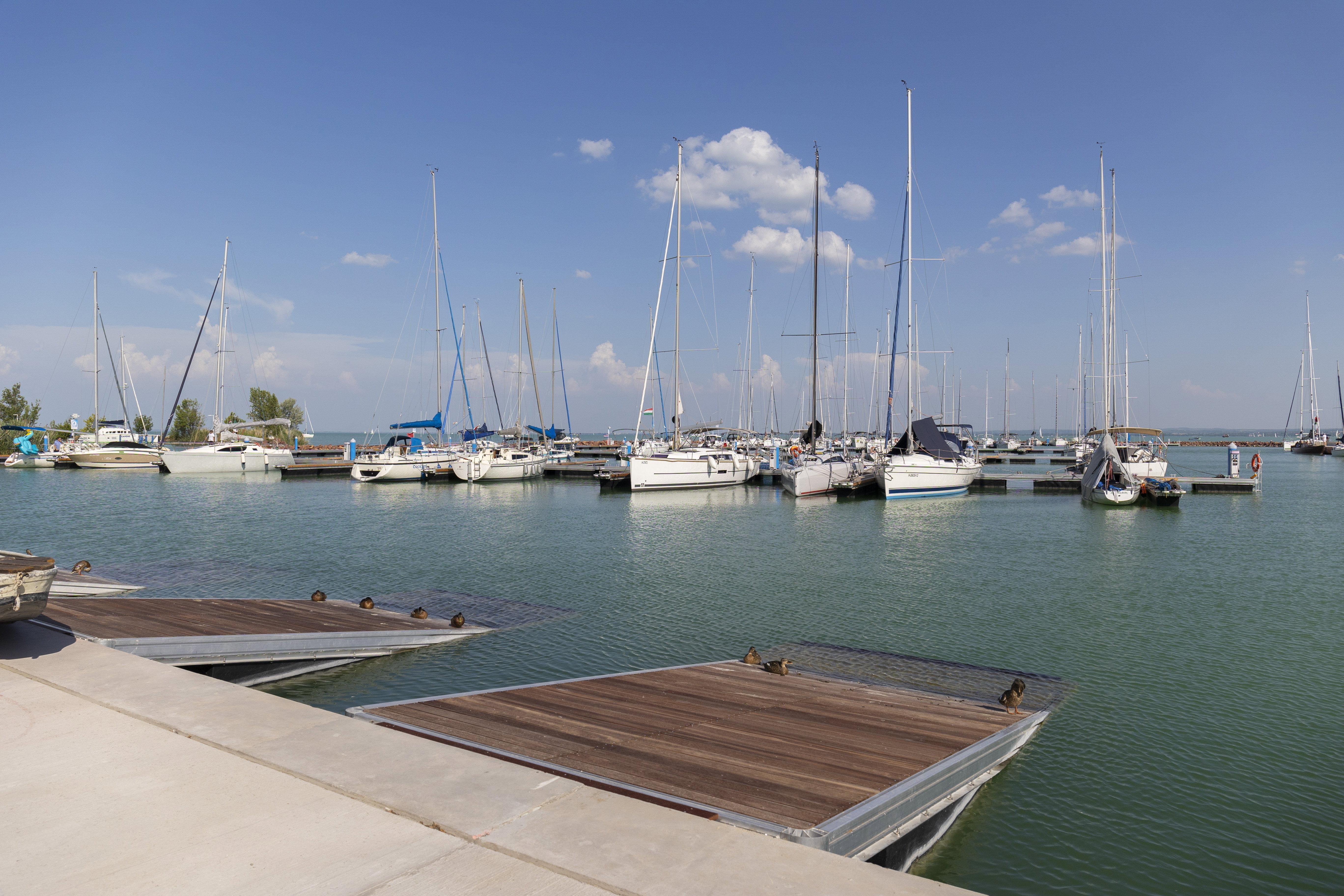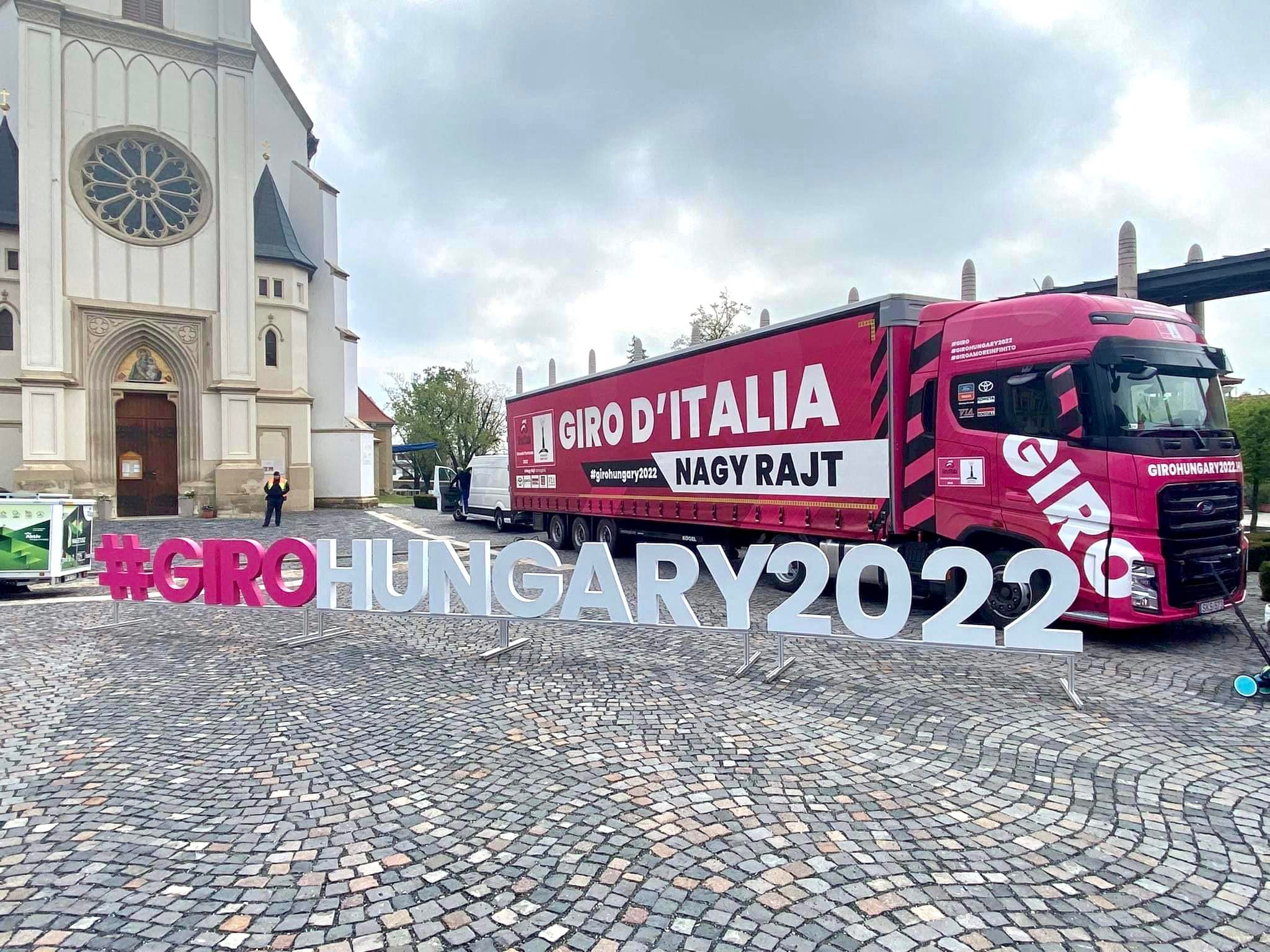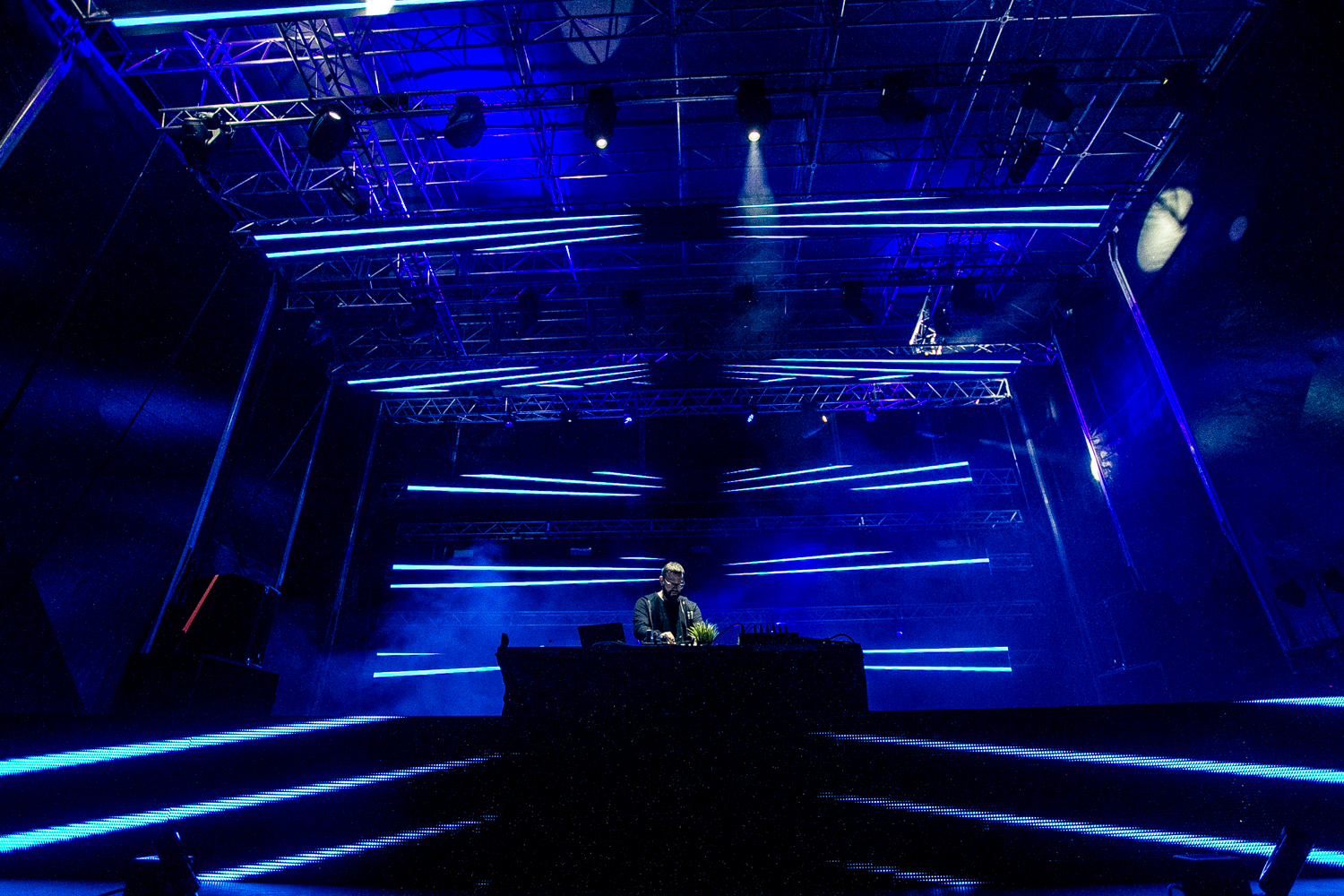Szélcsend is a small, modest, but ambitious place. Instead of its size, or enlarged puff pastries and heavy buttery cream cakes, it tempts with its quality selection, and kindness. Although we had a hard time finding it at the first time, we’ll definitely go there first when we are back to Balatonföldvár.
Szélcsend (means “breezeless”) actually has a central location: many people walk by, this is one of the busiest spots in town. It’s hidden between the supermarket and the various service providers, but since we are looking for something larger and more spectacular, we pass it several times. Then the locals point a finger to a small house: that’s it. And not even the entire small house; it’s only the half of it. An icy wind blows, chilling us to the bone, so when we enter Szélcsend, it’s quite literally feels like leaving the cold weather behind and stepping into the breezeless summer.
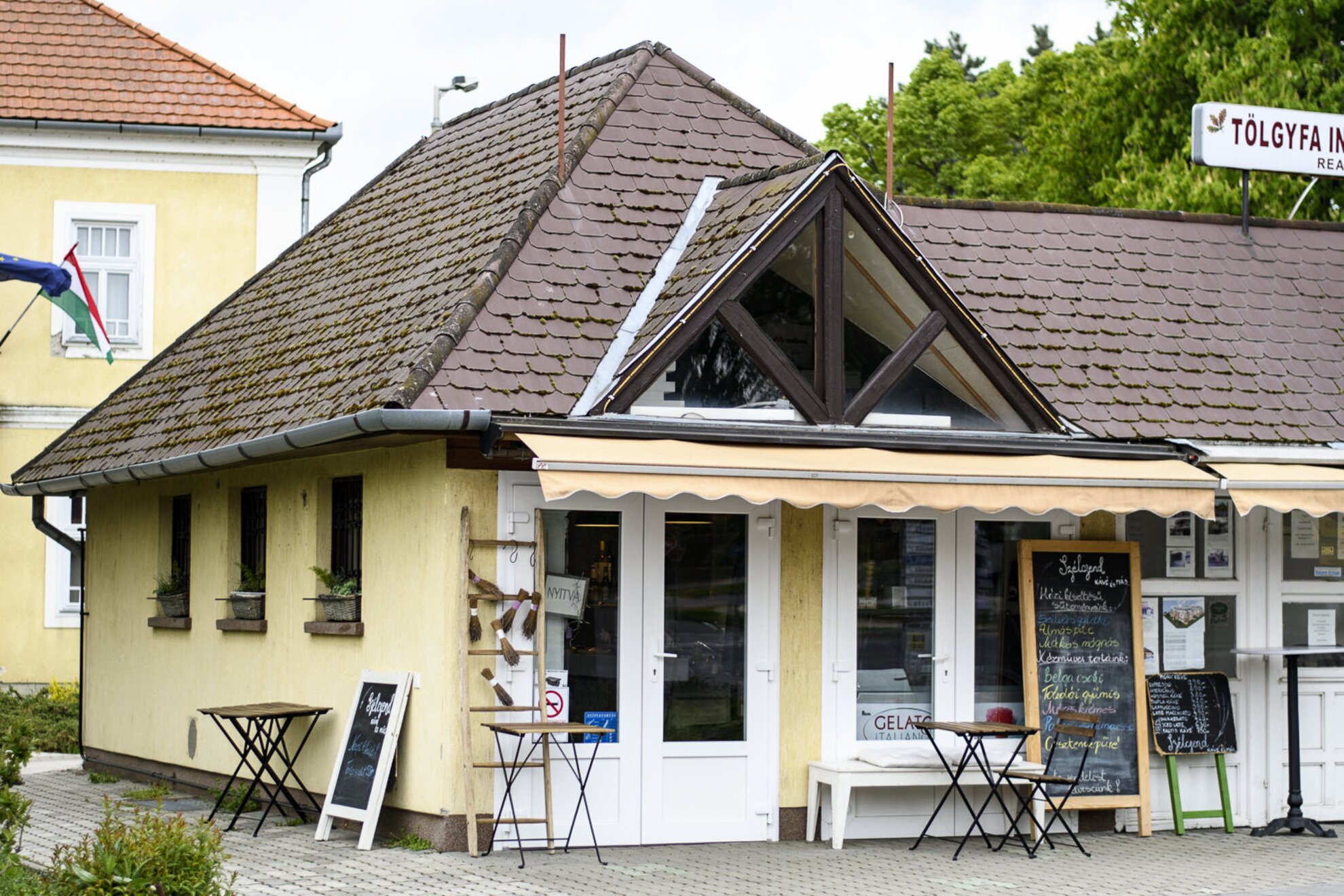
We are greeted by bouquets of lavender, warm lights, pies with golden tops, the smell of coffee, and kindness. There’s an apple pie and its sister, a poppy seed pie on the plate – it feels like our gifted friend baked them just for us. We choose the plum galette (490 HUF) sitting next to them, which is called “galetta” here. Its dough is softer and less flaky than the original French version's, but it still isn't soggy, even though the owner, Ili Majtényi filled it abundantly with fragrant plums. There’re paleo chocolate mousses, Belgian chocolate, honey and cream, chestnut, and Toulouse fruit cakes (790 HUF) in the refrigerator – we spotted the latter immediately. It’s a multilayered, light cake; if it wasn’t for the shiny caramel top, it would surely fly away.
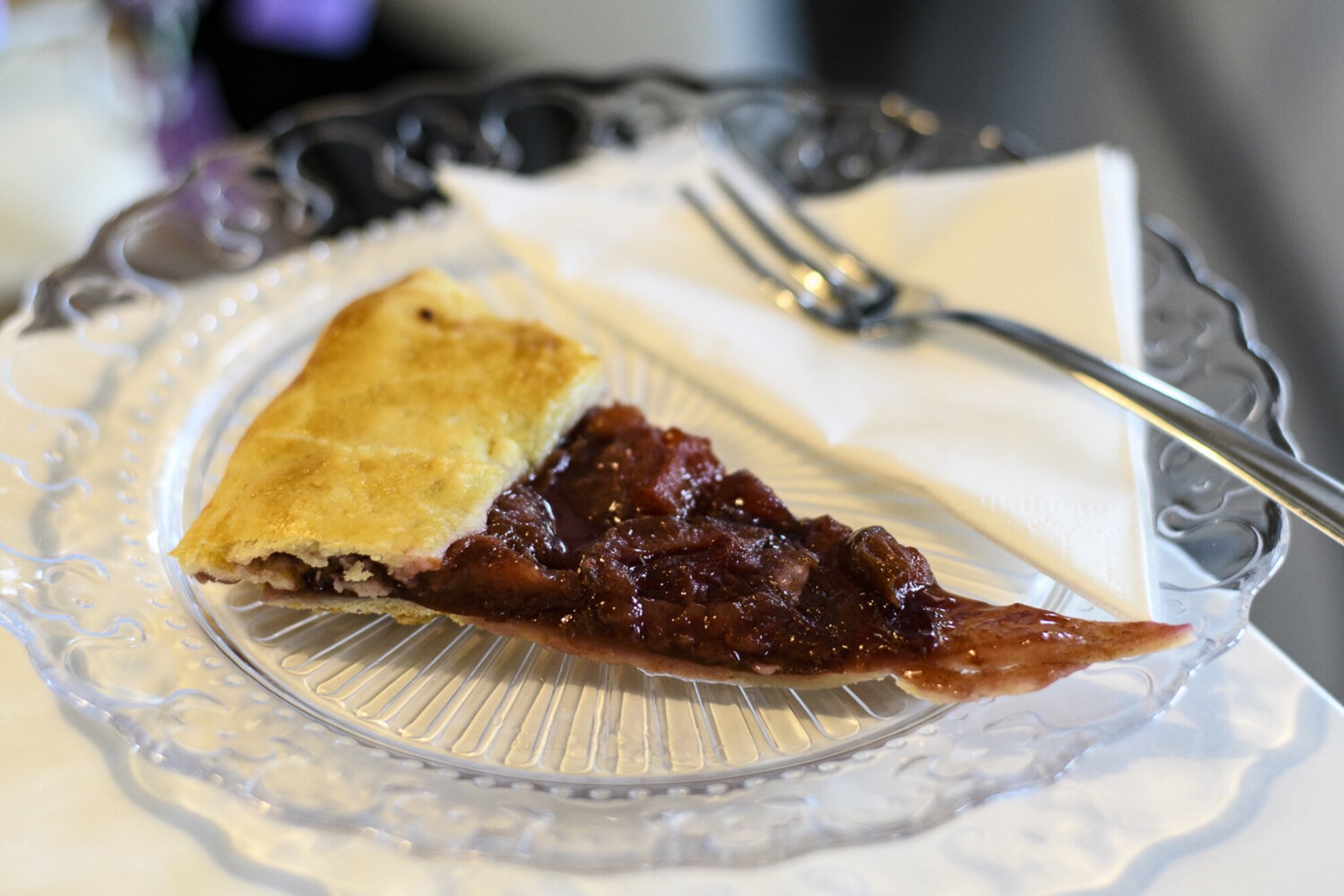
Between the thin buttery layers of pastry, there’s plenty – yet not a sickening amount – of whipped cream and various fruits, depending on what’s available. It was filled with raspberry, peach, and strawberry when we visited. Lovers of the French Napoleon pastry will love the caramel layer on top, although this isn’t a fondant, but a mixture of sugar, cream, and butter, sprinkled with some pistachio and hazelnut. The other cakes stand tall, this, however, is a bit lopsided with the cream peeking out from between the layers. Since it’s so airy, it’s hard to resist the urge and ask for another piece. Instead, we look out the window and check out the decorations on the shelves.
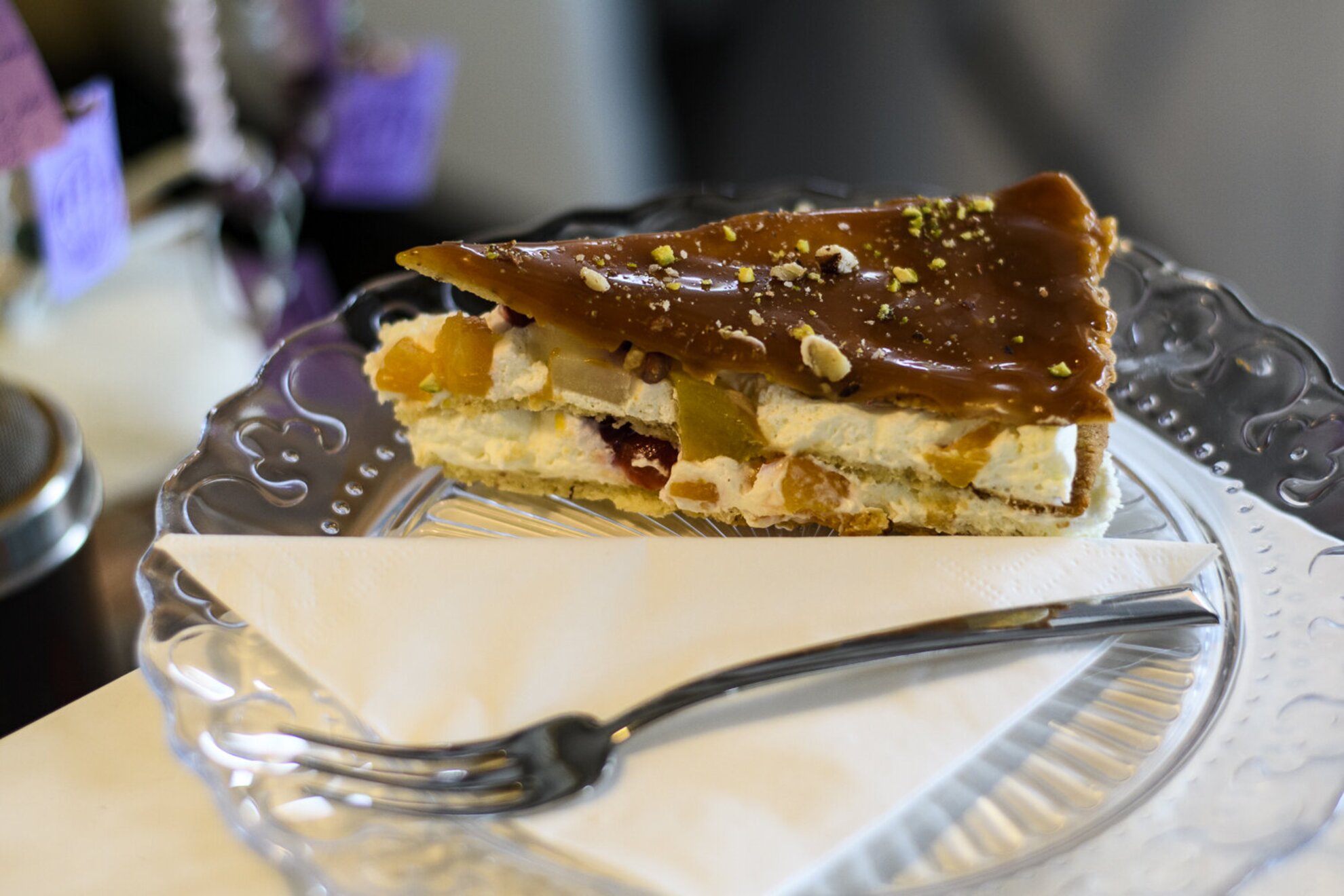
The coffee prices are refreshing, especially compared to the ones in the capital: espresso costs 290 forints, cappuccino is 390 forints, a latte macchiato is 490 forints, but they also have Americano, double, and three types of iced coffee. There’re two small tables next to each other, and a third one is a bit further away. The tiny size makes it feel intimate: when the regulars arrive – a two-year-old cake addict and a gentleman near seventy, who alkalizes with tea – the place is already full. Ili is soft-spoken, kind, and humble; she pays attention, and answers happily, although she doesn’t like the spotlight. She doesn’t like to be pushy. They’ll celebrate their first birthday this July, and so far they haven’t even advertised themselves. There’s no reason to complain as there’re plenty of costumers in winter and in summer as well, especially when they can sit down outside.
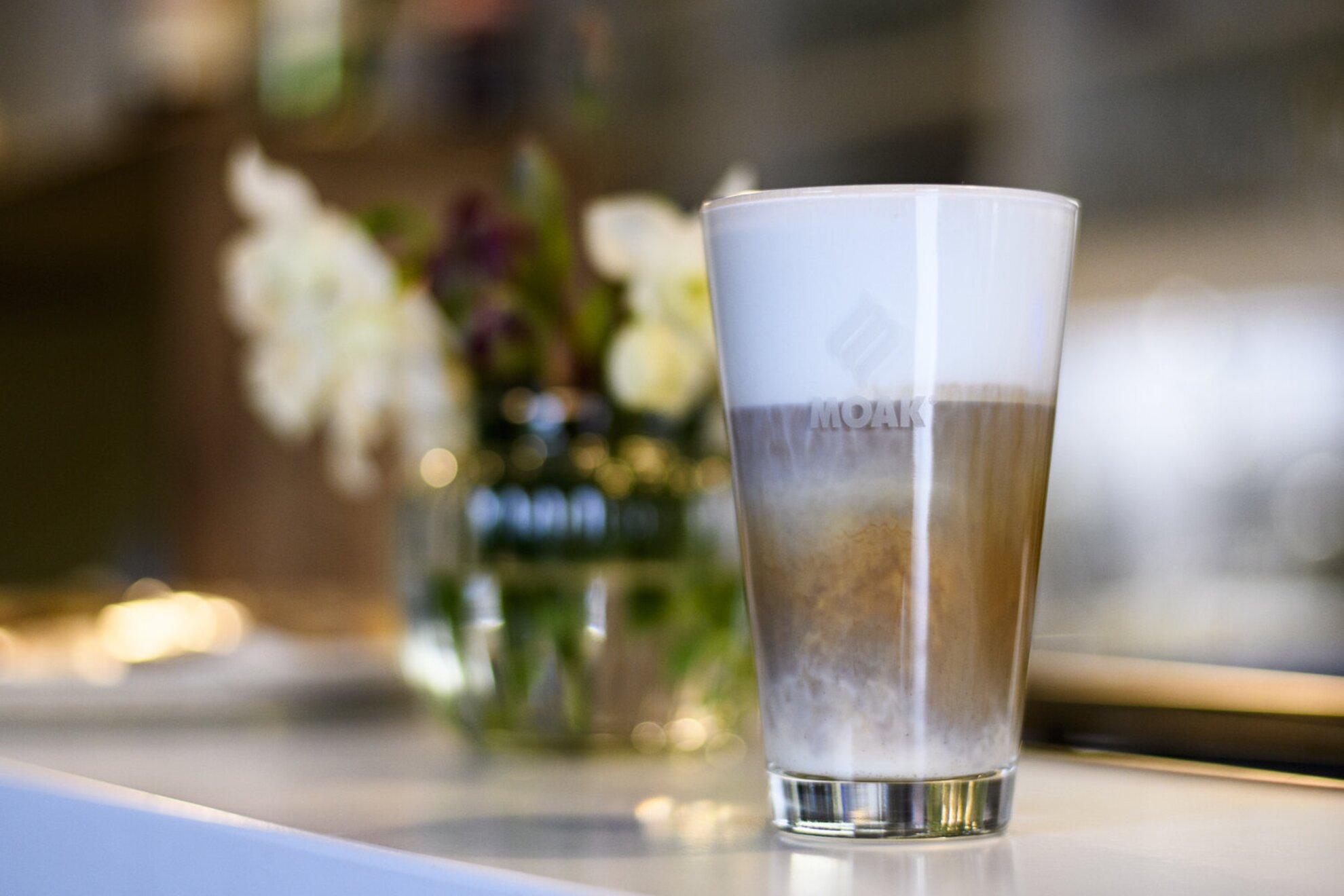
This is a dream came true, just as it’s shown in the movies: how many people dream about leaving their jobs and daily routines behind and start something else, something they’re passionate about? They dream about opening a chocolate shop, a café, or a flower shop. When it comes to Ili, she’s the odd one out, because in the beginning, she wasn’t that enthusiastic about selling desserts. Her brother wanted to open a small café, she was more interested in the interior design. Then it ended up being both, that’s why the name "says coffee and more". Ili used to work for her brother’s trading company, but since her husband’s job is in Balatonföldvár, she moved here too. And she fell in love with the café in a year.
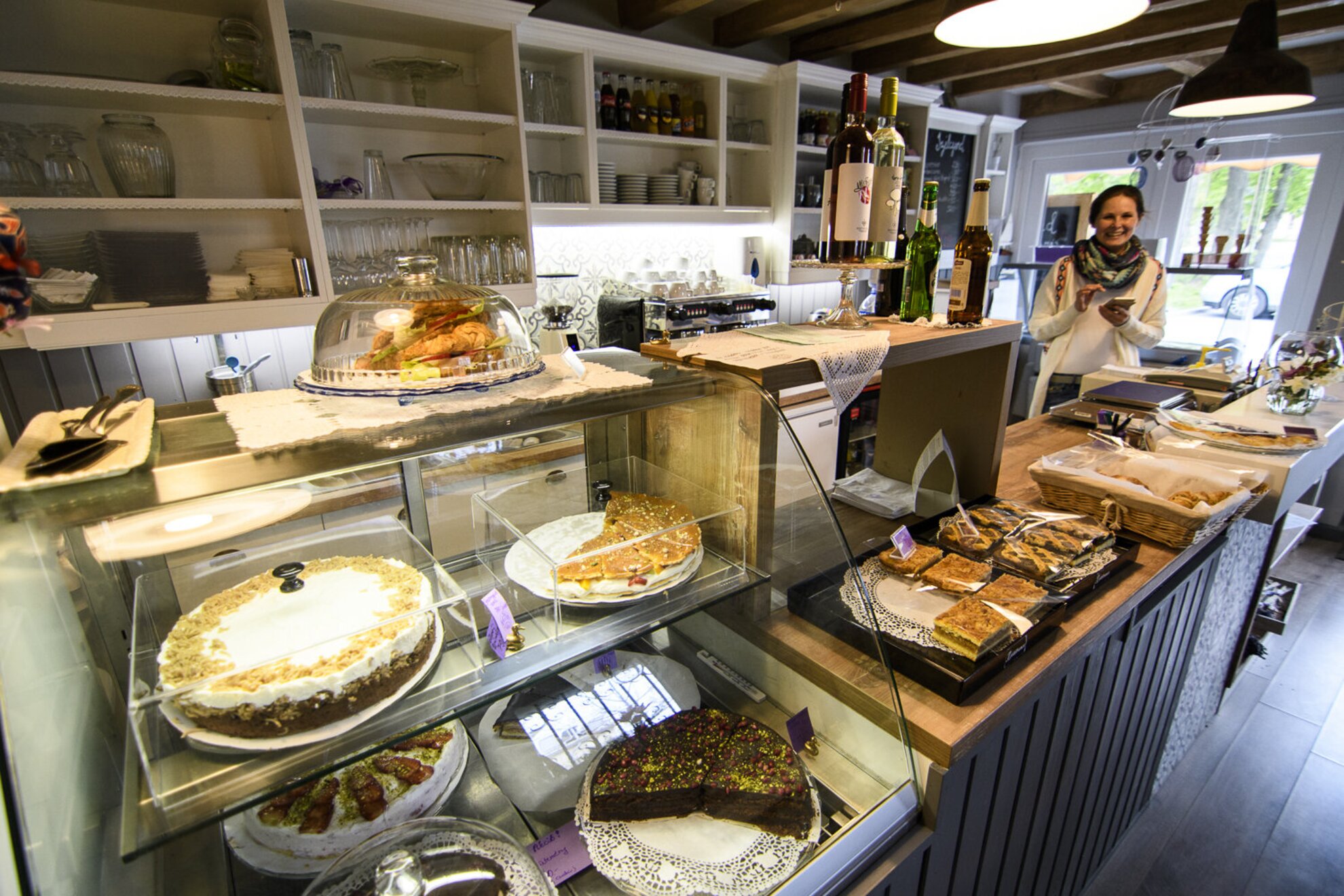
They wanted to create a place where guests can have quality coffee and tea, homemade cakes and cookies free from artificial additives, and where, during or after eating and drinking, they can buy handmade products, including the ones Ili makes with her brother, who also grows lavender. Lavender, lavender oil, and the fragrant bags come from the nearby lavender fields, while the lavender colored and patterned mugs, in which the teas are served, come from Ili’s workshop. The semiprecious stone bracelets are also made by Ili. Each stone is attributed a certain ability, and Ili says that the bracelets will attract their owners: people will choose the one that will help them in what they need.
